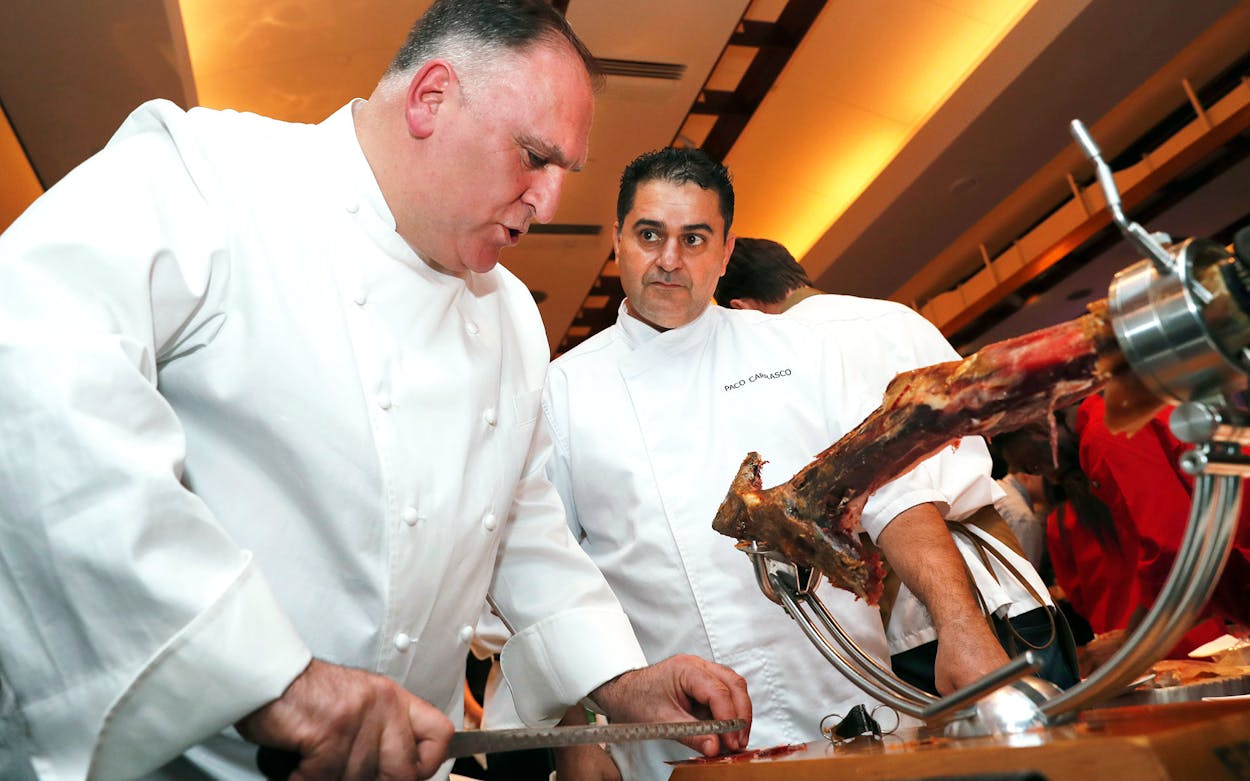Texas, sadly, came away empty-handed at the James Beard Awards in Chicago on Monday night. A handful of Texas restaurant industry professionals made the finals, but none brought home the bacon at the end of the three-hour-plus gala, a glitzy event attended by the biggest names in restaurants and hospitality and generally regarded as its Academy Awards. The Texas finalists included three men who were up for Best Chef in the Southwest region (Michael Fojtasek of Olamaie and Bryce Gilmore of Barley Swine, both in Austin, and Steve McHugh of Cured in San Antonio); a design firm (Michael Hsu Office of Architecture in Austin, nominated for its work on Otoko); and barkeepers (Anvil Bar & Refuge in Houston, headed by Bobby Heugel), up for Outstanding Bar.
The results were a bit of a come-down for Texas, which has dominated the Southwest regional awards since 2011. Denver jumped into the spotlight, with Alex Seidel of Mercantile Dining and Provision winning Best Chef: Southwest.
The awards delivered on all the expected elements: glamour, bling, backless ballgowns, black ties, patent-leather pumps, the occasional paisley tux jacket, and stiletto-heeled shoes that destroy your feet. There were actually more than the usual number of winners who looked a bit like deer in the headlights and began their speeches with a long pause followed by “Wow, I never expected I’d be up here, and I didn’t write down anything to say.” (But all quickly recovered and in fact proved quite articulate. The most touching was Dolester Miles of Highlands Bar & Grill in Birmingham, who cried all the way to the stage after the announcement that she had won the Outstanding Pastry Chef award. Miles was on stage again with the entire crew of Highlands when it won Outstanding Restaurant at the end of the evening—it was a very good night for Alabama.
In a larger sense, Miles’s win was emblematic of a trend in the awards that has been gaining strength recently but took a huge leap forward this year, namely the recognition of women and people of color. Underscoring the transition, Rodney Scott of Rodney Scott’s BBQ in Charleston won the Best Chef: Southeast award. And Gabrielle Hamilton of Prune in New York City won Outstanding Chef. More than once during the evening, speakers made reference indirectly to the #MeToo movement.
The third unofficial trend that surfaced very strongly over the course of the night was the acknowledgement of the essential place of immigrants in the restaurant industry. Nationally known Washington, D.C., chef José Andrés, who was named Humanitarian of the Year for the massive food relief effort he organized after Hurricane Maria hit Puerto Rico, among many other activities, spoke eloquently on the subject. Born in Spain and a naturalized U.S. citizen since 2013, Andrés, who recently opened Zaytinya at the Dallas Cowboys’ Star complex in Frisco, said, “Becoming a citizen of this country was one of the proudest moments of my life”and then adding “We are all immigrants.” He summed up the unofficial theme of the evening when he defined what he is most “for” at this moment in time: immigration reform and the equal treatment of women in the workplace.
The Beard awards are always full of drama and anticipation. This year, added to the mix was the sense that the industry is at a point of momentous change, with all the emotion that surrounds such an event. As one winner said at the end of a heartfelt acceptance speech, “Thank you—I’m going to go cry now.”








